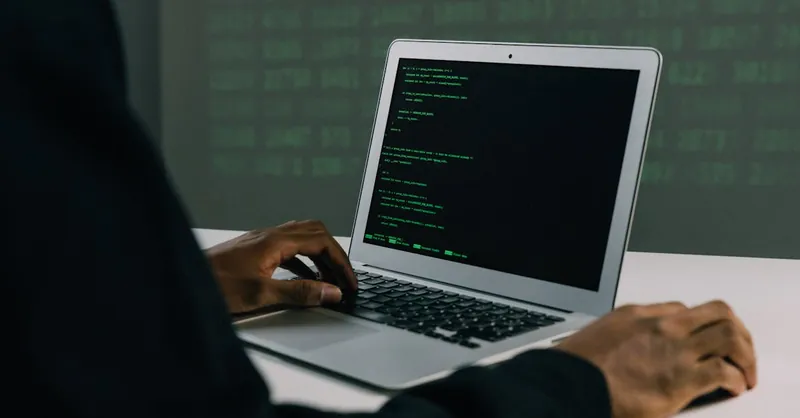Top Best Hacking Books for Beginners to Start Ethical Hacking
Category: Ethical Hacking
Discover the Best Hacking Books for Beginners to Kickstart Your Ethical Hacking Journey
If you're an aspiring ethical hacker just starting out or someone looking to build strong foundational skills, finding the right resources can be overwhelming. Maybe you stumbled upon this post because you want to learn hacking responsibly but don't know which books truly break down complex cyber attack concepts into practical and digestible knowledge. This article is crafted precisely for beginners like you, who are eager to learn ethical hacking techniques, understand cybersecurity frameworks, and practice real-world scripting tutorials without getting lost in jargon or advanced material prematurely.
Unlike generic lists, our post curates the best hacking books that not only teach fundamental concepts but also provide hands-on labs, updated methodologies, and progressive challenges to grow your skillset from novice to confident practitioner. Whether you're self-taught, a student, or a professional transitioning to cybersecurity, this guide will point you to books that serve as your roadmap through the vast terrain of ethical hacking. We'll break down each book’s strengths, target readers, and what unique value they bring to your learning journey.
Read on to find the perfect books that will empower you to grasp the technology behind cyber attacks, build practical skills in scripting, and eventually master penetration testing—all while adhering to ethical standards.
- Discover the Best Hacking Books for Beginners to Kickstart Your Ethical Hacking Journey
- Why Reading the Right Hacking Books Matters for Beginners: Understanding Foundational Concepts and Avoiding Common Pitfalls
- Top Criteria for Choosing the Best Hacking Books for Beginners
- Detailed Review of Must-Read Beginner Books: Overviews and Key Takeaways
- Books that Teach Foundational Networking and Security Principles
- Scripting and Programming Books for Beginner Hackers: Essential Coding Skills to Automate Tasks and Develop Exploits
- Books on Ethical Hacking Methodologies and Frameworks: Mastering the Hacker Mindset with a Focus on Ethics, Penetration Testing Phases, and Reporting
- Advanced Beginner Books and Resources to Bridge to Intermediate Level
- How to Complement Books with Hands-On Practice: Labs, CTF Challenges, and Virtual Environments
- Tips to Create a Personalized Learning Path Using These Books: Combining Theory, Scripting Practice, and Security Tools to Become a Proficient Ethical Hacker
- Additional Resources and Communities to Stay Updated: Forums, Blogs, and Websites for Continuous Learning
Why Reading the Right Hacking Books Matters for Beginners: Understanding Foundational Concepts and Avoiding Common Pitfalls
Starting your ethical hacking journey without a solid foundation can lead to confusion and frustration. Reading the right hacking books is crucial for beginners because it helps you build a deep understanding of core cybersecurity principles, the mechanics behind cyber attacks, and defensive strategies. Well-chosen books demystify complex topics like network protocols, encryption, and penetration testing techniques, enabling you to learn methodically rather than jumping in blindly.
Moreover, beginner-focused hacking books guide you away from common pitfalls such as relying on outdated information, misusing tools, or developing unsafe habits that could harm systems or violate ethical standards. These books emphasize best practices, teaching you how to approach vulnerabilities responsibly and how to think like both an attacker and a defender. By investing time in learning from expert-curated resources, you set yourself on a path to becoming a proficient ethical hacker with a mindset grounded in security, legality, and continuous improvement.
Key benefits of selecting the right hacking books for beginners include:
- Structured Learning – Step-by-step progression from basic concepts to practical application.
- Hands-On Labs – Real-world exercises that reinforce theory through practice.
- Updated Techniques – Exposure to current cyberattack trends and defense mechanisms.
- Ethical Guidelines – Clear frameworks for conducting hacking activities responsibly.
- Avoiding Overwhelm – Simplified explanations that prevent confusion from technical jargon.
Prioritizing quality books tailored for beginners ensures your learning curve is efficient and aligned with the ethical hacking community’s expectations. This thoughtful approach is the foundation for growing your skills successfully in the dynamic field of cybersecurity.

Image courtesy of Antoni Shkraba Studio
Top Criteria for Choosing the Best Hacking Books for Beginners
Selecting the right hacking books when you’re just starting out can be daunting, but focusing on specific criteria ensures your investment in learning pays off. The best hacking books for beginners are those that emphasize practical tutorials over theory-heavy content, allowing you to gain hands-on experience with tools and techniques critical to ethical hacking. Alongside practical skills, it’s essential the books provide clear ethical guidelines to help you understand the legal and moral responsibilities involved in cybersecurity work, preventing misuse or unintended consequences.
Another crucial factor is updated content—cybersecurity is an ever-evolving field, so books that reflect the latest vulnerabilities, tools, and defensive strategies will keep your knowledge relevant and effective. Additionally, the ideal beginner hacking books offer a well-structured learning progression, guiding you from foundational concepts like networking fundamentals and scripting basics to more complex topics such as penetration testing and vulnerability analysis. This gradual escalation allows learners to build confidence without feeling overwhelmed.
To summarize, when choosing the best ethical hacking books for beginners, prioritize:
- Hands-on, practical tutorials that encourage active learning and experimentation
- Strong ethical frameworks that stress responsible and legal hacking practices
- Current, up-to-date content reflecting the latest cybersecurity threats and tools
- Clear learning progression that matches your evolving skills and knowledge needs
By considering these criteria, you ensure your hacking book selection not only builds solid technical skills but also fosters an ethical mindset critical for a successful career in cybersecurity.

Image courtesy of cottonbro studio
Detailed Review of Must-Read Beginner Books: Overviews and Key Takeaways
To set you on the right path, we’ve selected some of the best hacking books for beginners that perfectly blend foundational theory with actionable insights and hands-on labs. Each of these titles has earned a reputation for breaking down complex cybersecurity topics into accessible knowledge while emphasizing ethical hacking practices.
1. Hacking: The Art of Exploitation by Jon Erickson
This book is a classic introduction that goes beyond surface-level concepts by diving deep into the technical workings of hacking. Jon Erickson provides clear explanations of memory, network communications, and programming intricacies essential for understanding real-world exploits. The integrated live coding examples and exercises make it invaluable for beginners who want to grasp the under-the-hood mechanics of attacks.
Key takeaways:
- Learn foundational C programming and debugging skills
- Understand buffer overflows, shellcode, and exploitation techniques
- Get introduced to low-level memory manipulation for hacking
- Develop a hacker’s mindset through step-by-step problem solving
This title suits beginners looking for an immersive technical experience that teaches hacking as a craft rather than just a checklist of tools.
2. The Web Application Hacker’s Handbook by Dafydd Stuttard and Marcus Pinto
Focused specifically on web security, this book provides an exhaustive guide to identifying and exploiting web application vulnerabilities. From SQL injection to cross-site scripting, it offers detailed methodologies for penetration testing against modern web technologies, making it a must-read for beginners focused on web hacking.
Key strengths include:
- Extensive coverage of common and advanced web vulnerabilities
- Real-world case studies and hands-on testing exercises
- Practical use of tools like Burp Suite for intercepting and manipulating traffic
- Emphasis on responsible disclosure and ethical considerations
Beginners will appreciate how the book balances detail with accessibility, equipping them to understand web security's evolving landscape.
3. Metasploit: The Penetration Tester’s Guide by David Kennedy et al.
Metasploit is one of the most popular penetration testing frameworks, and this guide provides a beginner-friendly introduction to harnessing its full potential. The authors walk you through practical scenarios where you use Metasploit to exploit vulnerabilities, craft payloads, and conduct post-exploitation tasks, all while instilling ethical hacking principles.
What you’ll gain:
- Stepwise walkthrough of setting up and using Metasploit modules
- Hands-on labs simulating common penetration testing workflows
- Insight into writing custom exploits and automating attacks
- Best practices for documenting and reporting findings responsibly
This book is ideal for beginners who want to quickly build penetration testing skills with a powerful toolset.
4. Other Recommended Beginner Hacking Books
- Penetration Testing: A Hands-On Introduction to Hacking by Georgia Weidman – Great for beginners, combining theoretical concepts with practical labs focusing on network and mobile device penetration testing.
- Black Hat Python by Justin Seitz – Offers deep dives into scripting and automating hacking attacks using Python, excellent once you have basic programming skills.
- Ghost in the Wires by Kevin Mitnick – An engaging autobiography that inspires ethical hacking by recounting real-world social engineering exploits and lessons in cybersecurity.
By exploring these carefully vetted books, beginners are empowered to build a strong foundation of ethical hacking knowledge, practical techniques, and critical thinking skills required to advance confidently in cybersecurity. Each book complements different aspects of hacking, from underlying theory to application, ensuring your learning journey is both comprehensive and up-to-date with industry best practices.

Image courtesy of cottonbro studio
Books that Teach Foundational Networking and Security Principles
Before diving into hacking tools and exploits, mastering foundational networking concepts and security principles is absolutely essential for any beginner ethical hacker. Understanding how networks communicate, the protocols involved, and where vulnerabilities exist provides the critical groundwork needed to grasp how cyber attacks occur and how to defend effectively against them. Without this solid base, learning hacking techniques can become confusing and less effective.
Networking fundamentals cover topics such as the OSI model, TCP/IP protocols, DNS, firewalls, and VPNs, while core security principles address encryption methods, authentication mechanisms, access controls, and intrusion detection systems. When you fully understand these areas, you can accurately identify weak points in systems and design practical ways to test and secure them. This knowledge also enables you to interpret network traffic, analyze logs, and develop scripting capabilities tailored to network security tasks.
Recommended Books for Building Strong Networking and Security Foundations
-
Computer Networking: A Top-Down Approach by Kurose and Ross
This widely acclaimed textbook breaks down complex networking topics into accessible sections, starting from application-layer protocols and moving down to physical components. Its clear explanations and practical examples make it ideal for beginners to acquire a comprehensive understanding of how the internet and local networks operate. -
Network Security Essentials by William Stallings
Focused squarely on security concepts, this book introduces cryptography, firewalls, VPNs, and key management in a beginner-friendly style. It bridges the gap between theory and practice, helping readers understand how security technologies protect data and networks in real environments. -
Practical Packet Analysis by Chris Sanders
To truly master networking, hands-on skills in traffic analysis are crucial. This book guides learners through capturing and analyzing network packets using tools like Wireshark, illustrating how legitimate and malicious network activities appear from a security perspective.
By prioritizing these foundational resources, beginner hackers can develop the robust technical literacy necessary for ethical hacking success. These books not only clarify the building blocks of network operations but also instill a security-first mindset, empowering you to think critically about vulnerabilities and defenses as you advance toward more specialized hacking skills.

Image courtesy of Morthy Jameson
Scripting and Programming Books for Beginner Hackers: Essential Coding Skills to Automate Tasks and Develop Exploits
Mastering scripting and programming languages is a cornerstone skill for beginner hackers eager to automate repetitive tasks, analyze vulnerabilities, and develop custom exploits. Whether you want to write simple automation scripts or build complex hacking tools, learning languages like Python, Bash, and PowerShell equips you with the practical coding foundation necessary to operate effectively in cybersecurity environments. The right beginner-friendly programming books break down these languages into easy-to-follow lessons, focusing on their application in ethical hacking scenarios rather than overwhelming you with theoretical syntax.
For instance, Python’s versatility and readability make it a favorite among ethical hackers for tasks such as penetration testing, data analysis, and exploit development. Bash scripting is invaluable for automating routine commands on Linux systems—a fundamental skill for navigating and manipulating target environments. PowerShell, designed for Windows environments, is indispensable when testing Windows security or automating network and system administration tasks. Books tailored to beginner hackers emphasize not only coding fundamentals but also security-centric examples like scanning networks, identifying vulnerabilities, or scripting payload delivery, boosting your ability to think programmatically in real-world hacking contexts.
Recommended scripting and programming books for beginner ethical hackers typically focus on:
- Hands-on coding exercises adapted for cybersecurity applications
- Clear explanations of programming logic and control flow without jargon
- Practical projects such as writing scanners, password crackers, or automation tools
- Integration of scripting languages with hacking frameworks and common tools
- Ethical hacking scenarios that demonstrate how programming skills enhance security testing
Investing time in these programming resources sharpens your problem-solving abilities and expands your toolkit beyond point-and-click exploitation. It empowers you to customize your approach, craft innovative solutions, and deeply understand the technical mechanics underlying cyber attacks and defenses. This blend of coding literacy and ethical hacking knowledge positions you as a more versatile and effective beginner hacker ready to tackle today’s dynamic cybersecurity challenges.

Image courtesy of Antoni Shkraba Studio
Books on Ethical Hacking Methodologies and Frameworks: Mastering the Hacker Mindset with a Focus on Ethics, Penetration Testing Phases, and Reporting
Understanding the methodologies and frameworks behind ethical hacking is a critical next step for beginners who want to progress beyond technical skills and develop a structured approach to security testing. These books teach you the hacker mindset but coupled with a strong emphasis on ethics—guiding you to conduct penetration tests responsibly, legally, and effectively. They break down the penetration testing lifecycle into distinct phases such as reconnaissance, scanning, exploitation, post-exploitation, and reporting, which not only makes the hacking process more systematic but also ensures thorough coverage and repeatability.
In addition to technical execution, a standout feature of these resources is the integration of best practices for writing professional penetration test reports. Clear documentation and communication of findings to stakeholders is essential for ethical hackers to translate their technical discoveries into actionable security improvements. These books also highlight frameworks like OWASP Testing Guide, PTES (Penetration Testing Execution Standard), and NIST Cybersecurity Framework, offering beginners industry-standard models to align their assessments with real-world security expectations.
Key topics covered in ethical hacking methodology books include:
- Developing a disciplined, ethical hacking mindset that prioritizes permission and legality
- Step-by-step penetration testing phases with practical workflows
- Risk assessment and vulnerability prioritization to focus on critical issues
- Effective reporting techniques that balance technical details with business impact
- Compliance aspects and alignment with cybersecurity regulations
By immersing yourself in these books, you gain more than just hacking techniques—you acquire a professional framework to approach security assessments systematically, responsibly, and persuasively. This knowledge is indispensable for beginners aspiring to become certified ethical hackers, penetration testers, or cybersecurity consultants, as it bridges the gap between raw skills and professional practice.

Image courtesy of Tima Miroshnichenko
Advanced Beginner Books and Resources to Bridge to Intermediate Level
Once you have mastered essential hacking fundamentals, it's time to delve into more complex topics that serve as a critical bridge to intermediate cybersecurity skills. Advanced beginner books focus on deepening your understanding of reverse engineering, cryptography, and vulnerability research—areas that sharpen your analytical thinking and technical prowess. These subjects are pivotal for ethical hackers aiming to dissect malware, decode encrypted data, and uncover hidden security flaws beyond surface-level exploits.
Books in this category challenge you to explore how software and hardware interact at a low level, build proficiency in interpreting assembly code, and understand the mathematical principles underpinning modern encryption algorithms. Additionally, they guide you through advanced techniques in vulnerability discovery, including fuzz testing, static and dynamic analysis, and exploitation chaining. Importantly, these resources maintain an emphasis on ethical boundaries and responsible disclosure, helping you cultivate both skill and integrity as you tackle more sophisticated cybersecurity challenges.
Key themes covered in advanced beginner books include:
- Reverse Engineering Techniques – Learning how to analyze binaries, disassemble code, and trace program execution to identify malicious behavior or weaknesses.
- Cryptography Fundamentals and Applications – Understanding encryption algorithms, hashing functions, cryptographic protocols, and how attackers might exploit cryptographic flaws.
- Vulnerability Research and Exploit Development – Developing the ability to find zero-day vulnerabilities, use debugging tools, and craft reliable exploits safely.
By investing in these enriched learning materials, ethical hackers transition smoothly from practical basics to strategic, investigative skills necessary for penetration testing, malware analysis, and security research. These books serve as a vital stepping stone, equipping you with intermediate-level knowledge that boosts your confidence and effectiveness in the cybersecurity arena.

Image courtesy of Antoni Shkraba Studio
How to Complement Books with Hands-On Practice: Labs, CTF Challenges, and Virtual Environments
Reading the best hacking books for beginners lays a solid theoretical groundwork, but practical, hands-on experience is indispensable for converting knowledge into real-world skills. Ethical hacking is a highly applied discipline—understanding vulnerabilities, attack vectors, and defenses requires active experimentation in safe, controlled settings. To maximize the value of your learning journey, complement your reading with structured labs, Capture The Flag (CTF) challenges, and virtual environments designed specifically for ethical hacking practice.
Engage with Interactive Labs and Simulations
Many top hacking books include hands-on labs that guide you through exploits, vulnerability scanning, and penetration testing exercises step-by-step. These labs reinforce concepts by walking you through realistic scenarios using popular tools like Metasploit, Nmap, and Wireshark. Additionally, platforms such as TryHackMe, Hack The Box, and Offensive Security’s labs provide immersive environments where beginners can apply techniques learned in books. These interactive labs foster deeper understanding by letting you practice reconnaissance, enumeration, exploitation, and post-exploitation tasks without risk to live systems.
Participate in Capture The Flag (CTF) Challenges
CTF competitions are gamified hacking exercises ranging from beginner-friendly puzzles to complex security challenges. They cover a broad array of topics including cryptography, web security, binary exploitation, and forensics. Engaging in CTFs helps you sharpen problem-solving skills, work collaboratively in hacker teams, and learn new hacking methods in a competitive but legal context. For beginners, starting with Jeopardy-style CTFs on platforms like CTFtime or PicoCTF is an excellent way to apply book knowledge practically while gradually increasing difficulty.
Set Up and Use Virtual Labs and Sandboxes
Creating your own virtual lab environment using virtualization tools like VirtualBox or VMware is highly recommended for safe testing. Installing vulnerable operating systems such as Metasploitable, OWASP Juice Shop, or DVWA (Damn Vulnerable Web Application) lets you experiment freely with hacking techniques learned from books. This controlled space prevents legal and ethical issues by isolating your activities from production networks. Moreover, configuring isolated networks with VMs allows you to practice custom attack scenarios, scripting automation, and defense strategies in a flexible and repeatable way.
Best Practices for Effective Hands-On Practice
- Start Small and Build Complexity: Begin with basic tasks like port scanning and progress to multi-step exploitation.
- Document Your Findings: Keep notes on techniques, commands, and outcomes to build a personal hacking journal.
- Follow Legal and Ethical Guidelines: Only practice on authorized environments to maintain integrity and compliance.
- Combine Book Learning with Practice: Use reading material as a reference while experimenting to reinforce and clarify concepts.
- Join Online Communities: Engage with forums and hacker groups for tips, mentorship, and collaborative problem-solving.
By actively integrating interactive labs, CTF challenges, and virtual practice environments with your theoretical study, you transform passive reading into skillful execution. This blended learning approach accelerates comprehension, boosts confidence, and cultivates the practical mindset essential for any beginner embarking on the ethical hacking path.

Image courtesy of Antoni Shkraba Studio
Tips to Create a Personalized Learning Path Using These Books: Combining Theory, Scripting Practice, and Security Tools to Become a Proficient Ethical Hacker
Crafting a personalized learning path is essential to maximize your growth as a beginner ethical hacker, transforming the wealth of knowledge from hacking books into practical expertise. Start by structuring your study plan around three core pillars: theoretical understanding, scripting and programming practice, and hands-on use of security tools. Begin with foundational books that cover networking and security principles to build a strong conceptual base. Concurrently, dedicate time to learning scripting languages like Python or Bash through beginner-friendly programming books, which will enable you to automate hacking tasks and customize your approach.
Progressively integrate practical exercises from hacking methodology texts and penetration testing guides, pairing them with interactive labs and virtual environments. This approach not only reinforces your theoretical insights but also develops critical thinking and technical agility. To keep your learning efficient and engaging, set realistic milestones such as mastering a new scripting concept weekly, completing specific penetration test phases, or solving CTF challenges based on topics studied. Finally, maintaining a learning journal or digital notes helps track your progress, document new techniques, and reflect on ethical considerations, ensuring a holistic development as a responsible hacker.
Key Steps to Build Your Customized Learning Journey
- Identify your current skill level and learning goals to select the most appropriate beginner books and topics.
- Balance theory and practice by alternating reading with scripting exercises and tool-based labs.
- Create a schedule that includes regular hands-on sessions using platforms like TryHackMe or Hack The Box.
- Focus on ethical hacking frameworks and reporting skills early to build a professional mindset.
- Engage with online forums or study groups to stay motivated and gain diverse perspectives.
By intentionally combining knowledge from trusted hacking books with active scripting practice and real-world tool application, you can accelerate your journey from novice to proficient ethical hacker. This integrated, personalized learning path ensures you develop not only technical skills but also the ethical judgment and strategic thinking necessary in today’s cybersecurity landscape.

Image courtesy of Matias Mango
Additional Resources and Communities to Stay Updated: Forums, Blogs, and Websites for Continuous Learning
In the fast-paced world of cybersecurity, staying current with the latest hacking techniques, tools, and vulnerabilities is just as important as mastering books. For beginner ethical hackers, supplementing your reading with active engagement in online communities, forums, and specialized blogs fosters continuous learning and helps you stay informed about emerging trends and best practices. These platforms provide invaluable opportunities to ask questions, share insights, and learn from experienced professionals and peers who share your passion for ethical hacking.
Top Online Forums and Communities for Beginner Hackers
- Reddit’s r/ethicalhacking and r/netsec: Vibrant communities where beginners can discover tutorials, ask for advice, and discuss the latest cybersecurity news.
- Hack The Box Forums: Alongside their practical labs, HTB’s forums offer deep discussions on challenges, tool usage, and exploit development.
- Stack Exchange’s Information Security: Perfect for clarifying technical doubts, exploring security concepts, and seeing real-world examples discussed in detail.
- Discord and Telegram Groups: Numerous ethical hacking and cybersecurity servers provide real-time chat, mentoring, and collaborative learning.
Must-Follow Blogs and Websites for Up-to-Date Ethical Hacking Knowledge
- Krebs on Security: Renowned for breaking cybersecurity news, incident analysis, and expert commentary.
- The Hacker News: Offers daily updates on hacking incidents, cybersecurity tools, and vulnerability disclosures.
- Null Byte (on WonderHowTo): Focused on beginner-friendly hacking tutorials and scripting how-tos.
- Offensive Security Blog: Shares insights, tools updates, and reports from professionals behind Kali Linux and OSCP certification.
By consistently integrating these community resources and authoritative cybersecurity websites into your study routine, you not only deepen your technical knowledge but also develop a professional network that supports your ethical hacking career growth. Active participation in forums and current reading from trusted blogs ensures that your skills and awareness remain cutting-edge, helping you navigate cybersecurity challenges confidently and responsibly.

Image courtesy of Darlene Alderson
